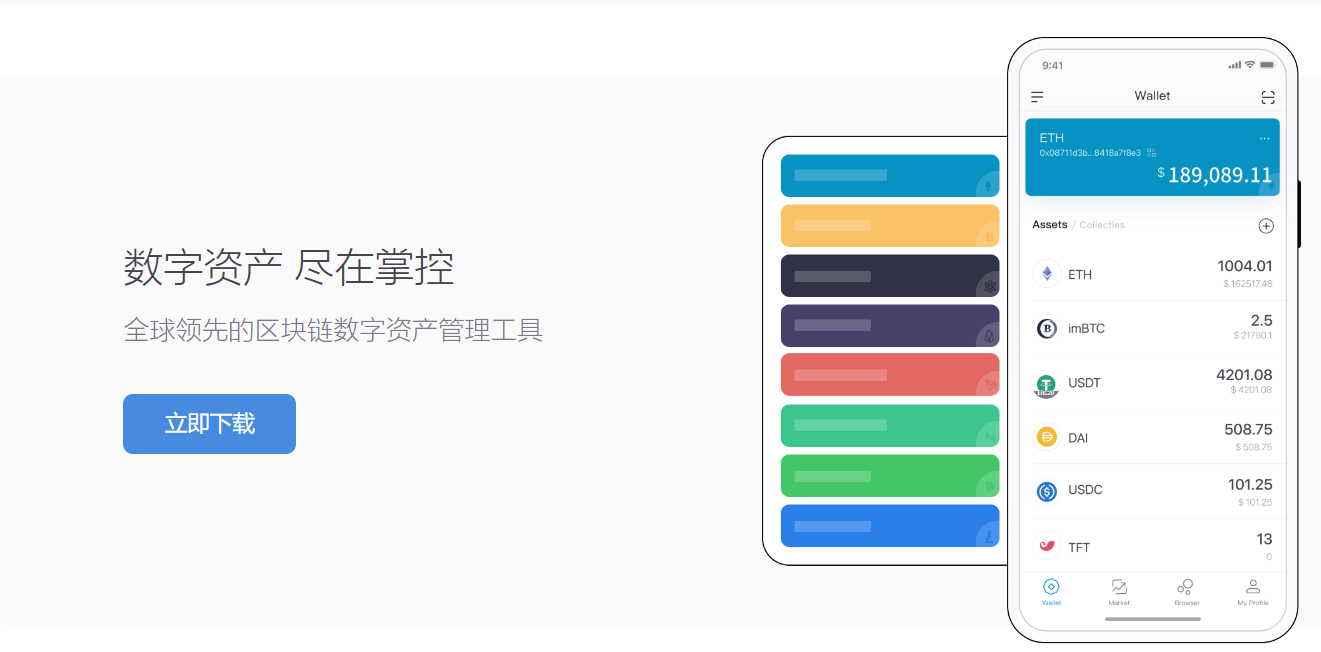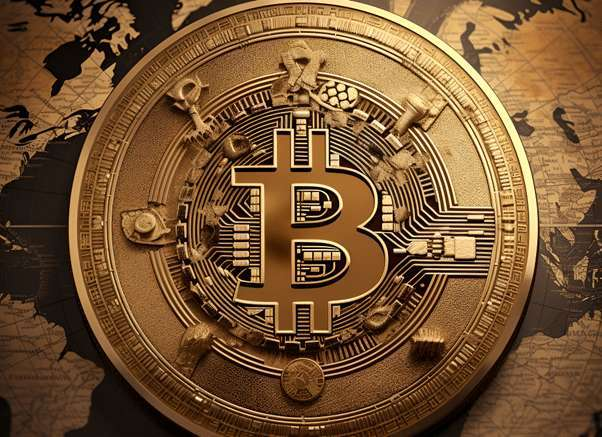Bitcoin vs gold, who is the king of safe-havens?
On 24 February, global financial markets and cryptocurrency markets were in turmoil due to the conflict between Russia and Ukraine. Bitcoin, once known as “digital gold”, fell below $35,000, down more than 9% during the day, the first time since July 2021 that the price of Bitcoin has fallen below $35,000.
Reasons for Bitcoin’s plunge
Pan He Lin, a member of the Information and Communication Economy Expert Committee of the Ministry of Industry and Information Technology and executive director of the Digital Economy Research Institute of Zhongnan University of Economics and Law, said that the direct trigger for Bitcoin’s plunge was the Russia-Ukraine conflict and the Fed’s expected interest rate hike, followed by the mainstream countries’ negative attitude towards Bitcoin, which is one of the reasons why Bitcoin’s price has entered a downward spiral.
As we all know, China has always had a negative attitude towards cryptocurrencies like Bitcoin. Previously, the National Development and Reform Commission (NDRC) had released news that the NDRC’s Decision on Amending the Guidance Catalogue for Industrial Structure Adjustment (2019) had now passed its deliberations, and virtual currency mining activities were included among the items to be eliminated from the category. This means that Bitcoin and its related mining activities, which have become popular in China in recent years, are now completely boycotted in the country. In addition, countries such as Algeria, Bolivia, Bangladesh, Nepal and Pakistan have also banned cryptocurrency trading.
The crash has sparked new thinking about bitcoin among industry participants, with many beginning to question its safe-haven properties.
This is because Bitcoin has demonstrated its “risk aversion” many times before. The most typical example of this is when people have turned to bitcoin when their country’s credit system was facing collapse and political tensions or even war caused an escalation of fear. In Zimbabwe, for example, the sudden political upheaval in 2017 brought global attention to the country, which resulted in hyper-inflation, foreign exchange shortages and economic crisis. In addition, there was the continued growth in demand for bitcoin caused when the Korean issue was in question, so much so that bitcoin continued to command a premium in South Korea for a very long time.
Last July, Morgan Creek Digital co-founder Anthony Pompliano tweeted that “Bitcoin is proving to be the best safe-haven asset in the midst of the current historic monetary stimulus.”
That view, however, clearly doesn’t hold true in this war.
Does Bitcoin still have its safe-haven properties?
Some say it is clear from this war that Bitcoin does not have a safe-haven function. Others say that Bitcoin’s hedging properties are revealed in a particular environment and phase, and are not a constant characteristic.
As part of the global financial market, Bitcoin cannot be analysed outside of the financial system, and its hedging properties need to be viewed in a dialectical and developmental manner. With the rapid development of the Bitcoin market and the change in market participants, Bitcoin has now taken on a different “status” and “position”. From the second half of 2020 to 2021, the correlation between Bitcoin and the Nasdaq Index will increase as many mainstream institutions and publicly traded companies enter the crypto market. This is why, until the first half of 2020, Bitcoin showed a negative correlation with markets such as US equities, and since then, the two have maintained a positive correlation almost exclusively.
Secondly, whether bitcoin has safe-haven properties is relative to investors with different positions and net worths. For high net worth individuals, bitcoin is a good option in terms of investment security, diversification and return opportunities, and therefore can be what they consider a safe-haven asset. Whereas for the average investor with a small amount of capital itself, the price of bitcoin is more of a volatile and risky asset.
What about the safe-haven properties of gold?
“Antiques in times of prosperity, gold in times of chaos”. This is the national understanding of the symbol of wealth at different stages.
Gold is a precious metal with monetary properties, based on a consensus across national boundaries, without an issuing institution, and has played the role of currency and luxury goods throughout human history, being given the ability to “keep its price”. Gold has performed well over the years and is unique in its ability to ‘protect’ prices and is one of the options available to combat market downturns.
Gold, which is both a commodity and a financial asset, has a unique pattern of price movement. Its value lies in its ability to hedge against the risk of credit currency devaluation, and when inflation is on the rise and the risk of currency devaluation is high, gold comes to the forefront of its investment value. Gold is suitable for long term holding as it has complex price influences and short to medium term price movements are difficult to accurately grasp, long term holding can be used as a hedge against market downturns.
Who is the ultimate currency, bitcoin or gold?
Compared to traditional safe-haven assets like gold, bitcoin is an up-and-down, high-risk asset and therefore less risky than gold in terms of safe-haven properties, and most people would not choose bitcoin as their primary safe-haven option in the face of a huge panic. As we can see from this event, as the situation continues to evolve, bitcoin plunges while gold rises, allowing gold to be further strengthened as a safe-haven asset instead. In response to this phenomenon, Goldman Sachs strategists said that gold is the ultimate hedge.
The reason why bitcoin is considered “valuable” is because it can be used as a substitute for official fiat currency in some countries, for commodity purchases, financial transactions and so on. In addition, the scarcity of bitcoin, which has been capped at 21 million, is the reason why bitcoin is considered to be a global “value-protecting currency”, a hedge against the risk of abuses such as the US dollar. Whether or not Bitcoin can truly become a global “value-conserving currency” in the future will depend on the development of national regulatory policies.
Translated with www.DeepL.com/Translator (free version)




